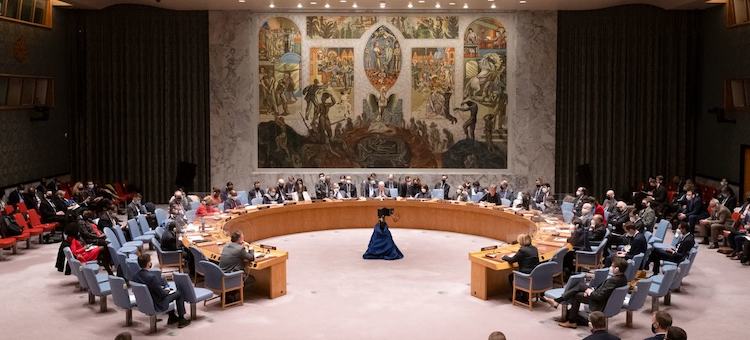By Jonathan Power*
LUND, Sweden. 3 October 2023 (IDN) — In Ukraine, there is war. The only place where it is happening on a significant scale in the Western hemisphere. Elsewhere in the Middle East, there are only two “live” wars—Syria and Yemen. In Latin America and the Caribbean, zero. In Asia, only in Myanmar.
Nevertheless, is the world going to hell in a handbag, as some say? If one looks at Colombia, the answer is “no”. Although fragile, the government’s nine-year-long peace deal with rebel armies is holding. Moreover, Latin America has long been the most peaceful of all continents in terms of conflicts per head of population.
Only East Asia rivals it. Iraq and Afghanistan, the locus of American-driven wars, have found peace. After decades of civil wars, at one time being the most violent of all the continents, Africa went through some years of peace before succumbing in the francophone countries to attacks by Islamic militant militias over the last three years.
These last three years, the “yeses” have it, in a way. For the first time since the end of the Cold War and the subsequent fast fall in regional conflicts, the number of those killed in war has taken a sharp turn up. In 2010, such had been the rate of fall in conflicts since the end of superpower competition, when mucking and muddling in the Third World was an everyday habit, the number of wars reached a record low.
Since then, they have started to occur with greater frequency. However, the number is still a good way below its high during the last century’s Cold War and World War years.
Will the graph continue to go up? It is doubtful, I think. Nowhere else in the Middle East looks like bursting into flames. Most of Africa should stay peaceful—in terms of the number of people involved in violence in the francophone countries is small. Only in Sudan are significant numbers caught up in a fratricidal war.
Pakistan and India are one big danger
The one big danger in the world is Pakistan and India. Will they go to war over Kashmir? Since both sides have nuclear weapons, raising the temperature too high would be catastrophic, and both sides know it.
Public opinion is ignorant of just how much violence has declined over the last 400 years. From the seventeenth century until the twentieth, the percentage of the world’s people who died from warfare declined from 3% of the deaths in the century to 0.7%. Judging by the historical record of the 21st century thus far, it is the least violent century of all. Despite Syria, Afghanistan, Iraq, Yemen, Libya, Somalia, Sudan and Nigeria, there are less people being killed in war than ever before.
Mass killing—genocide—has become rarer and rarer. Not since the war in Bosnia in the 1990s and the Rwanda pogroms of 15 years ago has there been a genocide. (Despite Ukrainian propaganda, there has not been a Russian-committed genocide.)
Nor is the number of coups increasing, although events in Turkey seven years ago remind us that even a functioning democracy is not immune from a near-successful attempt. The heyday of attempted coups was in the mid-1960s, when nearly 15 occurred yearly. In the 2000s, that fell to less than five a year. An article in The Economist asked why there should be a decline and reasoned it is because of the world becoming more prosperous. Poor growth rates, it said, make coups more likely.
How to stop a war?
This month, the big question is how to stop a war, particularly how can war in Syria, Yemen and Ukraine be mediated first to a truce and then to a solution. Is it too late—or perhaps too early—for negotiations to succeed? The Ukrainian war should never have happened. Despite the deadly antics of President Vladimir Putin, the fundamental cause was the expansion of NATO.
According to Oslo’s Peace Research Institute (PRIO), until 1989, victory for one side in a civil war was common (58%). Today, victory is much rarer (13%). Negotiated endings have jumped from 10% to 40%.
Over the last two decades, UN peacekeeping and its high-powered mediators have become more ubiquitous, experienced, and effective. This has certainly been a major reason for successful peace-making. So has the effort to cut off funding to militias.
As Putin once suggested, UN troops should have been deployed on the Ukrainian/Russian border long ago. And they should have been deployed in Syria right at the beginning of the conflict.
No one can at this stage tell if peace can be brought to Ukraine, Syria, Myanmar, Yemen, the Congo and the Sudan. Are they going to be one of the 40% with a negotiated ending?
Once again, the UN’s Security Council must learn to act in unison, as it did in the balmy years after the ending of the Cold War—until the magic wore off the peace lamp with the expansion of NATO up to Russia’s borders, despite promises made to Russia not to.
Only when the Security Council acts in unison does the world stand a chance of abolishing war. At the moment, the mood and practice are going the other way. It is becoming a twenty-first-century tragedy.
Copyright: Jonathan Power
*Jonathan Power was for 17 years a foreign affairs columnist and commentator for the International Herald Tribune, now the New York Times. He has also written dozens of columns for the New York Times, the Washington Post, the Boston Globe and the Los Angeles Times. He is the European who has appeared most on the opinion pages of these papers. [IDN-InDepthNews]
Photo: As the Security Council met on the Ukraine crisis on 22 February 2023, Russia announced start of a ‘special military operation’. © UN Photo | Mark Garten
IDN is the flagship agency of the Non-profit International Press Syndicate.

